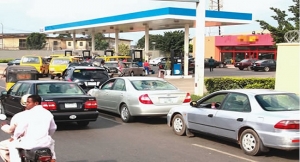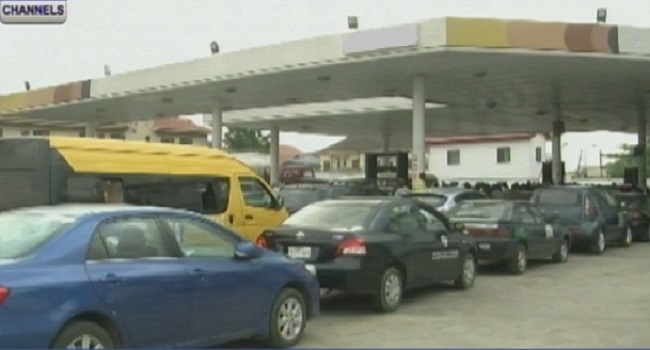
Fuel queues are beginning to return to some service stations in different Nigerian States, as a result of a perceived scarcity of the product.
The development led to the statement by NUPENG.
Total Removal Of Fuel Subsidy
Addressing reporters in Owerri, the capital of Imo State on Saturday, the National President of NUPENG, Mr Igwe Achese, said that Nigerians would continue to experience scarcity and inflation in prices of petroleum products from time to time unless the Nigerian National Petroleum Corporation (NNPC) returned to its statutory role, as the sole importer of petrol.
Mr Achese lamented the lack of political will on the part of the government over the total removal of fuel subsidy on imported and refined products.
He further stressed the need for the government to create an enabling environment to encourage private sector’s interest in building refineries in Nigeria for the purpose of improving the local refining capacity to meet the ever increasing local demand of petroleum products and indeed for exportation purposes.
Meanwhile, the (NNPC) said it had injected additional volumes of Premium Motor Spirit to enrich product availability in some major cities with noticeable fuel queues.
In a statement by its Group General Manager, Group Public Affairs Division, Ohi Alegbe, the NNPC said that the measure was in line with its drive to ensure zero fuel queues ahead of the forthcoming yuletide and beyond.
It said there was no cause for panic buying, insisting that the scarcity was artificial.



